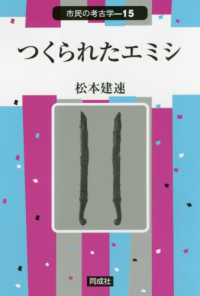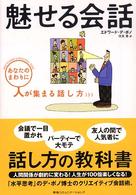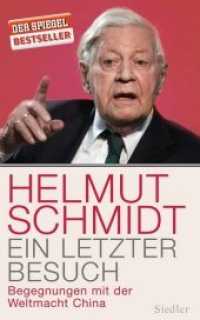- ホーム
- > 洋書
- > 英文書
- > Politics / International Relations
Full Description
The rise of post-truth politics marks the most serious crisis of Western liberal democracy since the end of the Cold War. The decline of trust in expert knowledge and mainstream media, the rise of social media devoid of a gatekeeping function and the growth of covert external interference in electoral processes have led to fragmentation, polarization and destabilization of Western democratic systems. What makes post-truth politics so difficult to resist is its apparently democratic character that claims to challenge bureaucratic depoliticisation, the rule of experts and the disappearance of alternatives to the hegemonic policy. Biopolitics after Truth refutes this interpretation, arguing that the post-truth ideology leads to the degradation of the public sphere that is essential to democratic governance. Rather than enable resistance to expertise-based biopolitical governmentalities, truth denialism dissolves the only framework where their contestation and transformation could take place. In contrast, Biopolitics after Truth argues for a positive role of truth-telling in the democratization of biopolitical governance.
Contents
Introduction: The Word of the YearAgrippina: Post-Truth Avant la LettreOutline of the Argument
1. The Regime of EquivalenceDiagnosis: There Are Only Bodies and LanguagesDefinition: Post-Proof, Post-Shame, Post-ConsensusRegime: Equivalence Vs EqualityContrast: Post-Truth Politics or Truth Politics?Paradigm: the Spread
2. Subject to TruthFoucault: Why Is There Truth?Truth As a Procedure of Subjectivation: Foucault and BadiouAgamben: from Oaths to Tweets
3. The Russification of the WestVladimir Zhirinovsky: the Rise of Postcommunist TrollingPara-Soviet Practices in the Post-Soviet EraWhere Meaning Runs DeepThe Epistemology of ConspiracismWhy So Serious?Globalising Post-Truth: How to Wash It All Away in the WestPussy Riot: How to Speak in a Non-Equivalent Manner
4. The Truth Won't Tell ItselfParrhesia: Disobedient DiscourseThe (Bio)Power of the PowerlessTruth As ForceGreta Thunberg: How to Follow the ScienceEquality, Equivalence and Democratic Life
Coda: On Error








